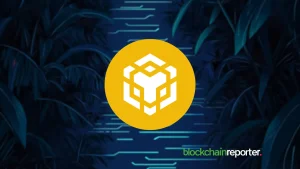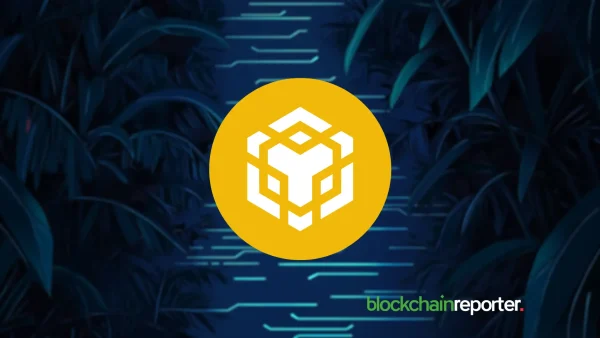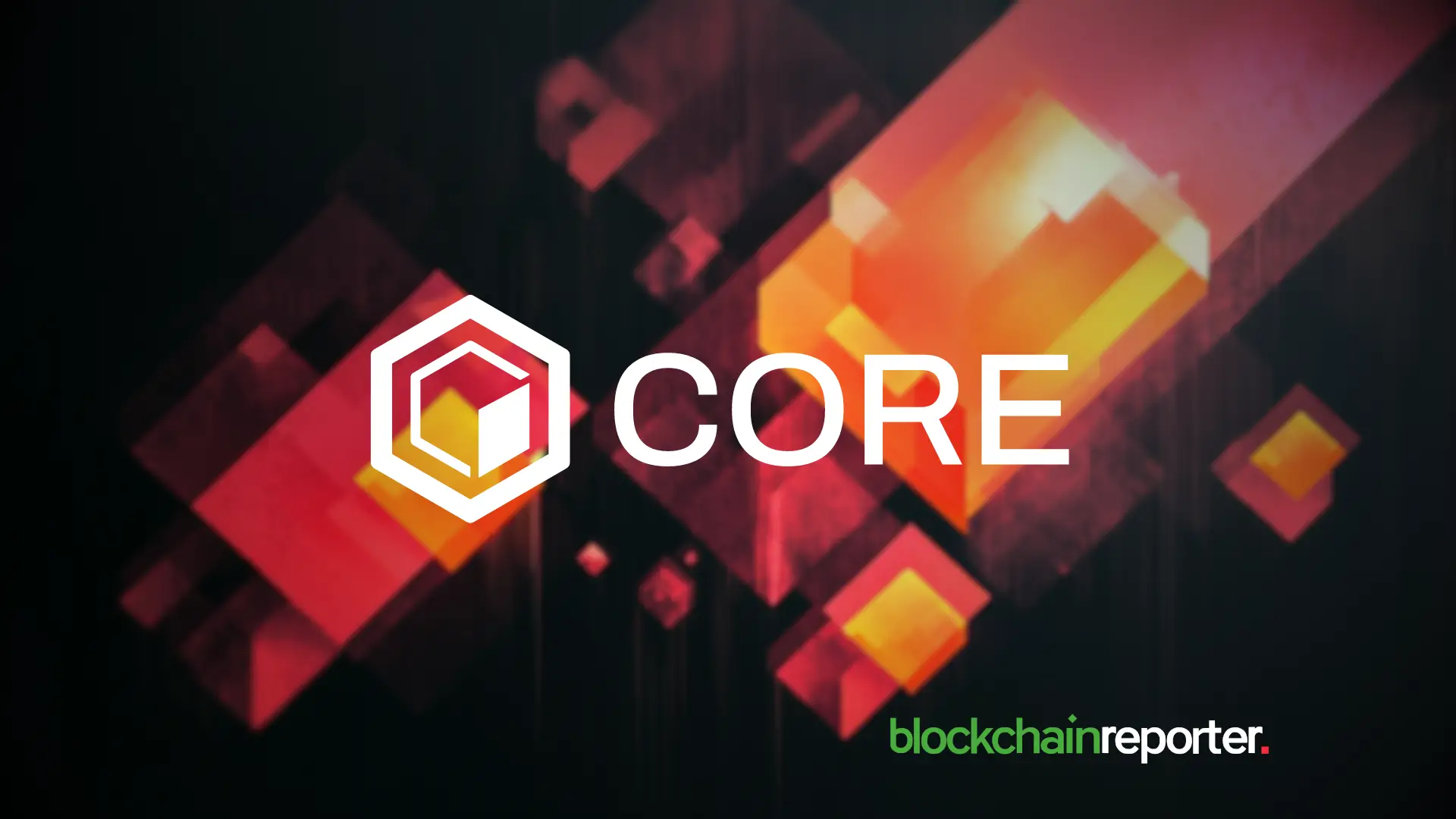
Introduction
Core DAO is a groundbreaking blockchain project that uniquely bridges Bitcoin’s security with Ethereum’s flexibility through its novel consensus mechanism called Satoshi Plus. This Layer-1 blockchain, which is EVM-compatible, offers a secure platform for decentralized applications (dApps) while leveraging Bitcoin’s unmatched decentralization and security framework.
Core DAO aims to foster a comprehensive BTCfi ecosystem, empowering Bitcoin (BTC) to be actively utilized in decentralized finance (DeFi) without compromising its inherent strengths. In this review, we will explore the technical architecture, governance model, staking mechanisms, ecosystem growth, and future potential of Core DAO. With a focus on decentralization, Core DAO presents itself as a pivotal innovation in the cryptocurrency space.
Core DAO’s Unique Architecture
At the heart of Core DAO is the Satoshi Plus consensus mechanism, a hybrid design that integrates Delegated Proof of Work (DPoW), Delegated Proof of Stake (DPoS), and Non-Custodial Bitcoin Staking. This multi-layered approach significantly enhances network security and ensures the participation of diverse stakeholders, including Bitcoin miners, CORE token holders, and stakers.
- Delegated Proof of Work (DPoW): By allowing Bitcoin miners to delegate their hash power to Core validators, the network can leverage Bitcoin’s robust security infrastructure without incurring additional costs. In return, miners earn rewards in the form of CORE tokens.
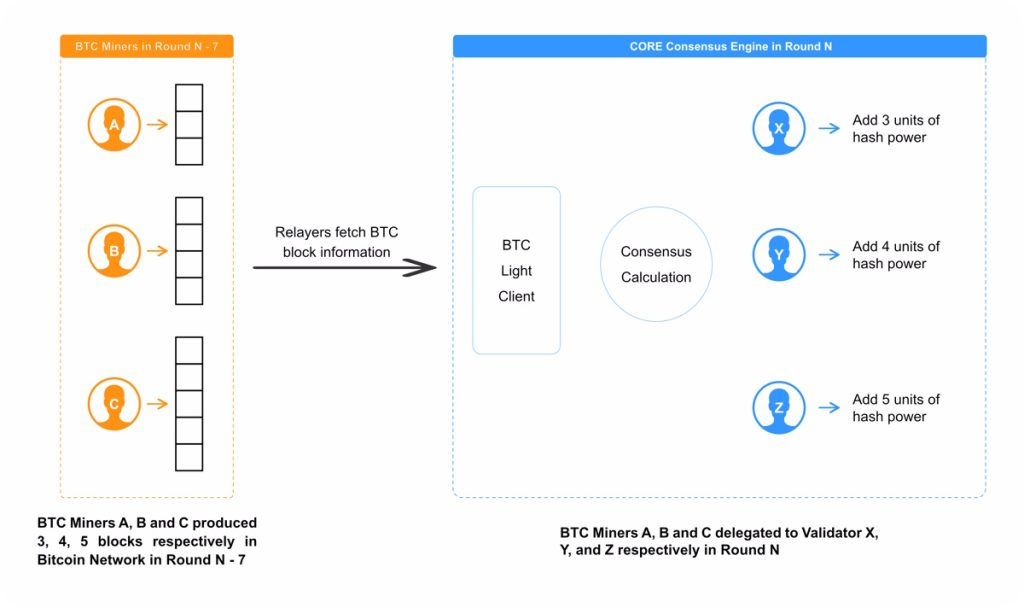
- Delegated Proof of Stake (DPoS): CORE token holders participate in governance by staking their tokens to validators. This process secures the network while promoting decentralization through a transparent and participatory election mechanism.
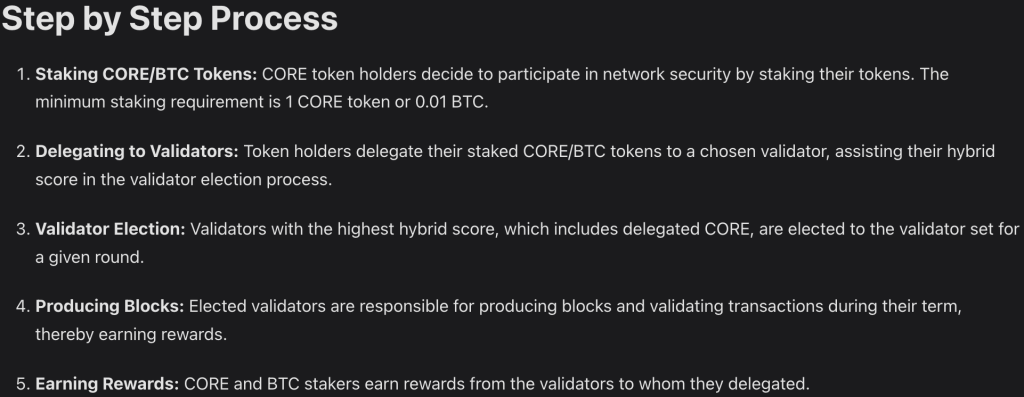
- Non-Custodial Bitcoin Staking: Bitcoin holders can stake their BTC in time-locked contracts, earning CORE tokens while maintaining control over their Bitcoin. This transforms Bitcoin into a yield-generating asset without compromising its security.
This consensus model ensures high levels of decentralization and security, making Core DAO a resilient blockchain platform designed for the next generation of decentralized applications.
Core DAO’s Key Features
The following are the key features of Core DAO:
1. EVM Compatibility
Core DAO’s EVM compatibility allows developers to deploy existing Ethereum-based dApps with minimal modifications. This not only simplifies the transition for developers but also increases the accessibility of the network. Through its Ethereum Virtual Machine (EVM) compatibility, Core DAO opens the door for numerous decentralized applications (dApps) to migrate or launch on its platform.
2. Wrapped Bitcoin (coreBTC)
One of the standout features of Core DAO is its Core-native Wrapped Bitcoin (coreBTC). This decentralized and trust-minimized solution allows Bitcoin to be seamlessly used on Core’s platform for smart contracts and other DeFi-related activities. The pegging of coreBTC to Bitcoin at a 1:1 ratio makes it a highly useful asset for BTC holders who wish to utilize DeFi.
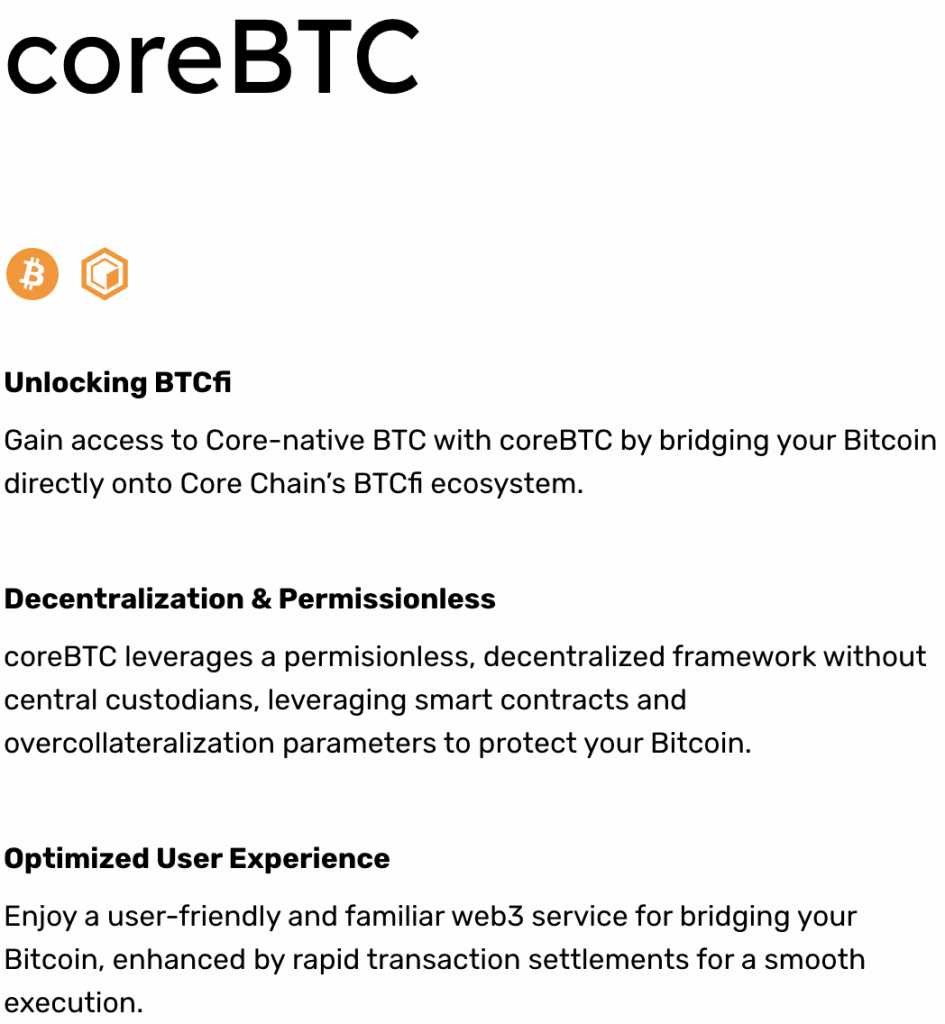
3. Security Enhancements
Core DAO prioritizes security, involving both Bitcoin miners and stakers in the transaction validation process. The integration of Guardian Nodes adds another layer of security, actively monitoring the network for malicious activities and punishing bad actors when necessary.
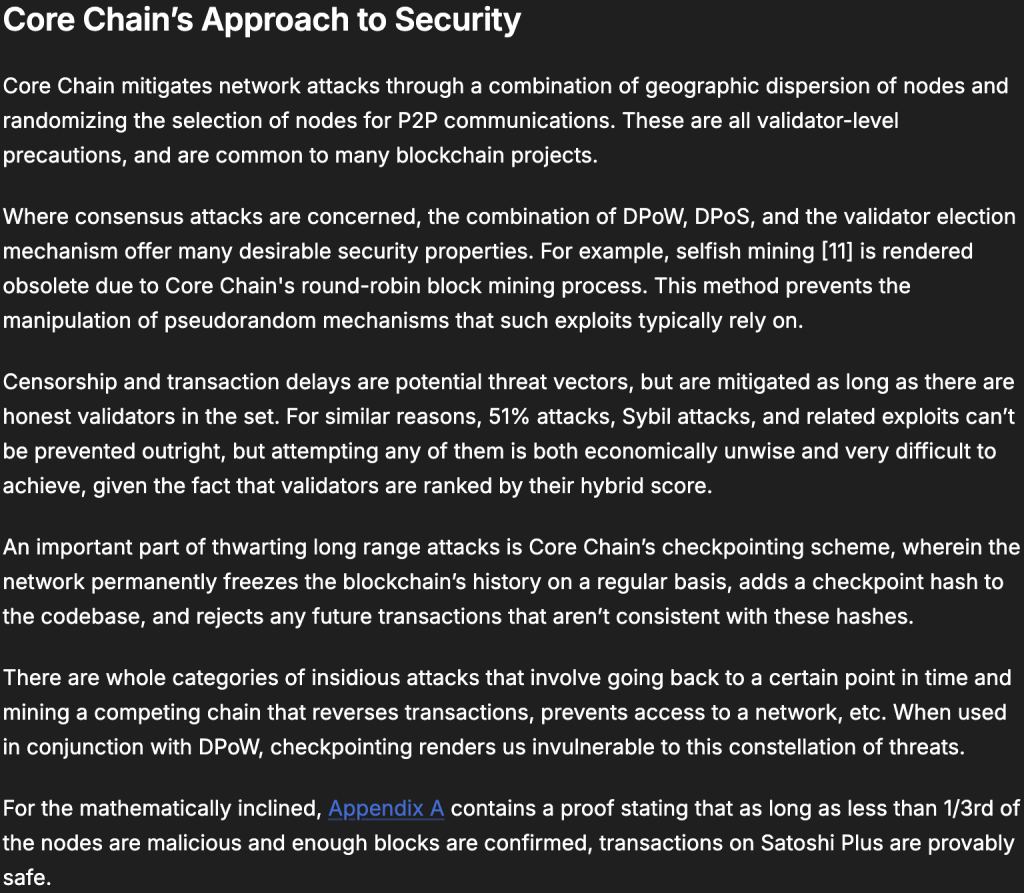
4. Cross-Chain Interoperability
Core DAO’s hashed timelock contracts (HTLC) enable trustless peer-to-peer exchanges of tokens between Core and other blockchains. This cross-chain interoperability makes Core DAO a highly flexible platform for developers and users alike, supporting a wide array of decentralized financial products.
Core DAO’s Ecosystem and BTCfi
The Core DAO ecosystem is rapidly growing, primarily driven by its BTCfi (Bitcoin decentralized finance) applications. The network supports multiple Bitcoin-centric protocols, transforming Bitcoin into an underutilized yet powerful asset within the DeFi space. Unlike conventional DeFi protocols that primarily focus on Ethereum, Core DAO is laser-focused on Bitcoin-based assets, allowing BTC holders to engage in DeFi activities without needing to sell or give up custody of their Bitcoin.
Developers are encouraged to build on Core DAO through various incentive programs like Core Ignition and the Builders’ Incentive Program, which provide grants to foster innovation in the ecosystem.
Governance and Community Participation
Core DAO takes a transparent approach to governance. Decisions regarding network upgrades, economic policies, and parameter adjustments are made through an on-chain voting system. This governance structure not only ensures decentralization but also empowers community members to have a direct say in the platform’s future.
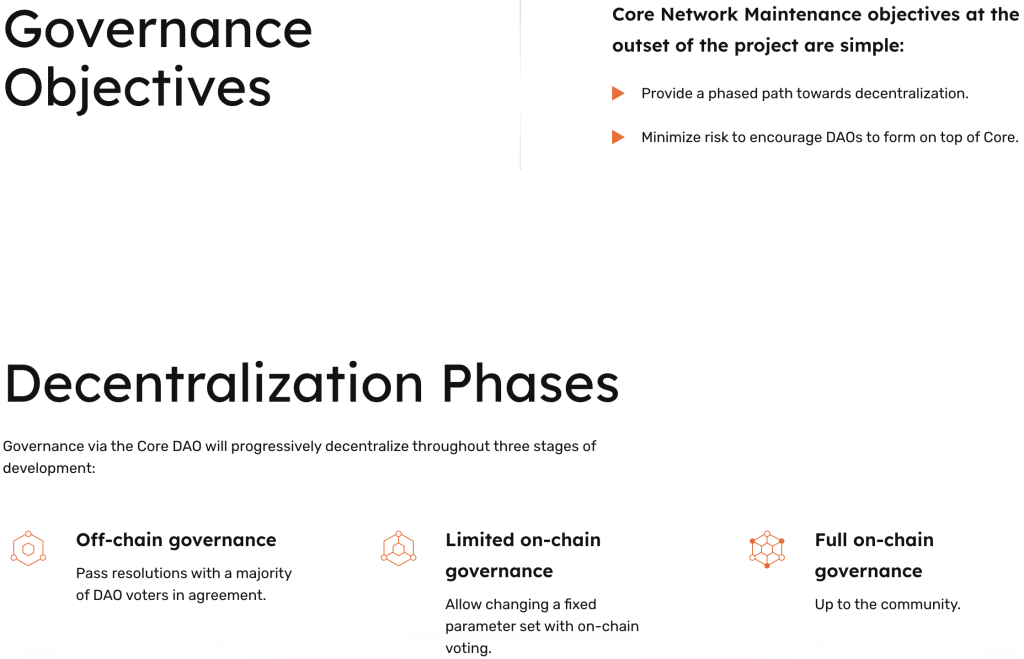
Additionally, community incentive programs are designed to reward users who contribute to the ecosystem, whether through development, education, or governance participation. This fosters a collaborative and inclusive environment within Core DAO.
Core DAO’s Staking Model
Core DAO’s staking model stands out due to its dual staking system, which incentivizes both Bitcoin and CORE token holders. This structure ensures that users who are deeply invested in both ecosystems benefit from higher staking rewards. With Non-Custodial Bitcoin Staking, Bitcoin holders can earn yields without compromising security, making it a revolutionary way to integrate Bitcoin into the broader DeFi landscape.
Future Vision and Roadmap
The Core DAO team has ambitious plans for the future. Some key features in the roadmap include:
- Dual-Staking: Enhancements that create higher staking rates for users who stake both Bitcoin and CORE tokens, further aligning the interests of both communities.
- Local Fee Markets: Optimizing transaction fees to ensure predictability and efficiency, making the network more user-friendly and scalable.
- Atomic Swaps: Core DAO aims to improve its HTLC atomic swap capabilities, enabling seamless cross-chain exchanges without the need for trust, enhancing interoperability with other blockchains like Ethereum and Bitcoin.
Comparison with Other Blockchains
Compared to other Layer-1 blockchains like Ethereum and Solana, Core DAO is unique in its alignment with Bitcoin. While Ethereum and Solana are renowned for their scalability and dApp ecosystems, they do not offer Bitcoin holders the same level of integration or incentives that Core DAO provides. Core’s Satoshi Plus consensus model combines the best of both worlds, creating a more secure and decentralized environment for Bitcoin and DeFi users.
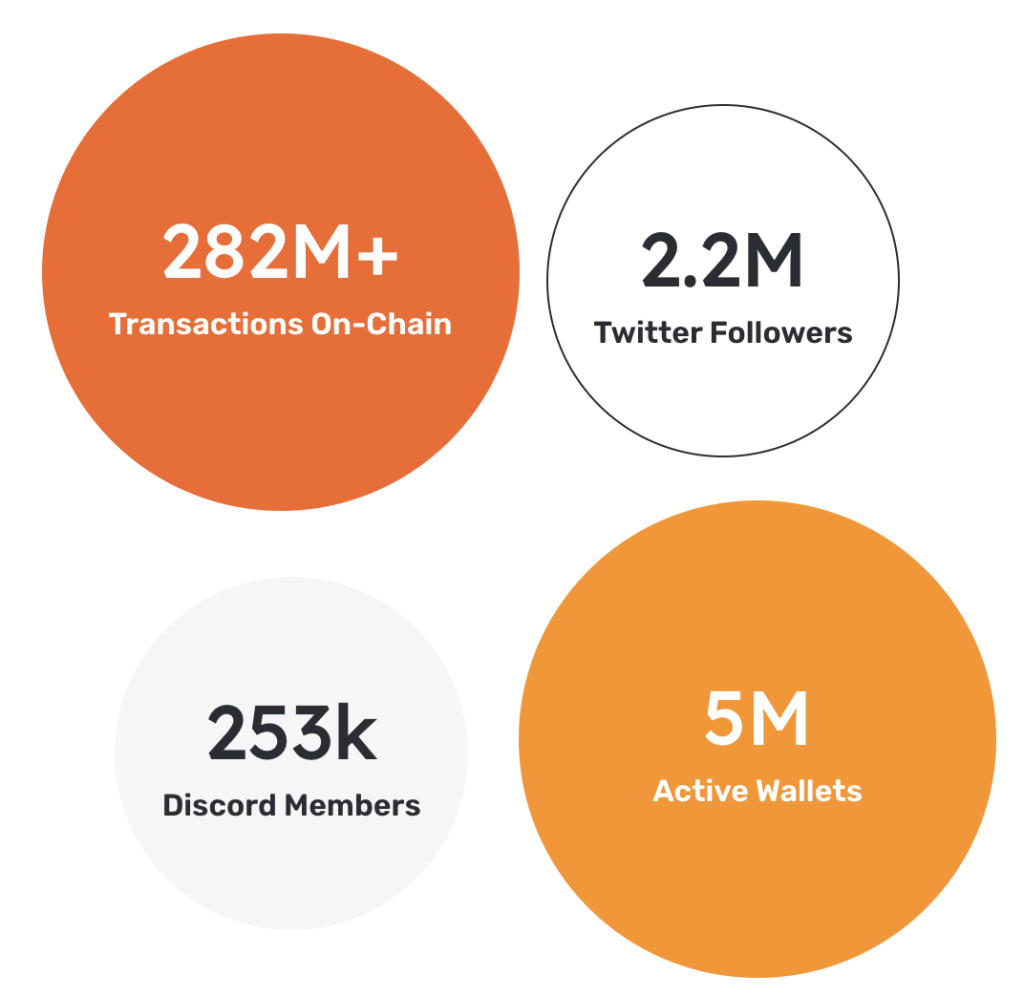
Conclusion
Core DAO represents an exciting frontier in the blockchain industry by uniquely integrating Bitcoin’s security with Ethereum’s flexibility. Through its Satoshi Plus consensus, Core DAO offers a highly decentralized, secure, and scalable platform designed to unlock the full potential of Bitcoin within the DeFi ecosystem.
With a growing ecosystem, innovative staking mechanisms, and a clear roadmap, Core DAO is well-positioned to lead the next wave of decentralized finance. Its commitment to community governance and transparency further solidifies its place as a forward-thinking project in the blockchain space.
As the platform continues to evolve, it will likely play a significant role in the broader adoption of Bitcoin as a key asset in decentralized finance. For developers, investors, and Bitcoin enthusiasts, Core DAO offers a promising platform with significant growth potential.
Frequently Asked Questions
How much is 1 Core DAO in dollars?
The price of 1 Core DAO (CORE) fluctuates based on market conditions. As of now, CORE is trading at $0.9065. You can check the latest price on cryptocurrency tracking platforms like CoinMarketCap or CoinGecko. To find the most up-to-date price of Core DAO in dollars, visit their official listings on such platforms, where live price data is provided in USD.
What is the price of 1 Core DAO?
The price of 1 Core DAO changes constantly depending on market supply and demand. It is currently trading at $0.4461. To check the exact current price, you can refer to leading cryptocurrency exchanges like Binance, KuCoin, or crypto price aggregators such as CoinGecko. These platforms offer real-time prices of Core DAO (CORE) against the USD and other major fiat currencies.
What is Core DAO?
Core DAO is a Layer-1 blockchain that utilizes a novel consensus mechanism called Satoshi Plus. This consensus model combines elements of Delegated Proof of Work (DPoW) and Delegated Proof of Stake (DPoS) to secure the network while leveraging the decentralization and security of Bitcoin. Core DAO’s primary goal is to create a secure, decentralized ecosystem for decentralized applications (dApps) and decentralized finance (DeFi), particularly focusing on integrating Bitcoin within the DeFi space through the concept of BTCfi.
What is the real price of Core DAO?
The “real” or current price of Core DAO (CORE) is the market price listed on major cryptocurrency exchanges. Prices can vary slightly between exchanges based on trading volume and liquidity. For the most accurate and up-to-date price, you can visit exchanges like Binance, Coinbase, or tracking platforms like CoinMarketCap and CoinGecko, where real-time price data is available.



